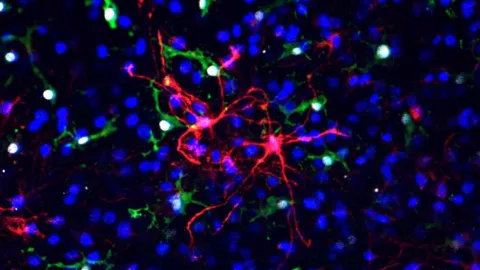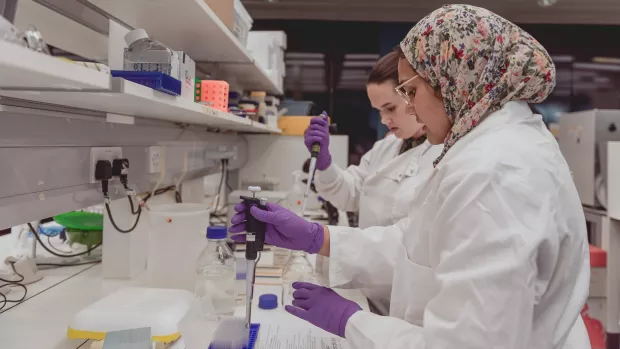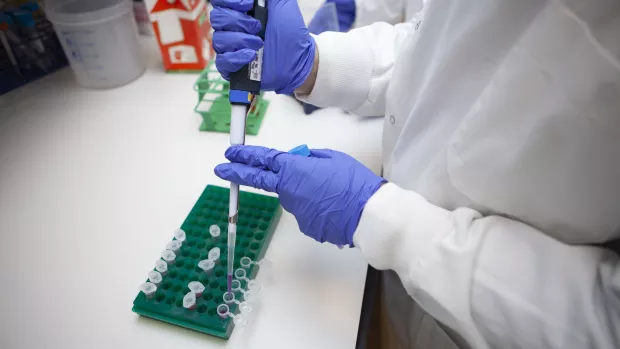
Behind the headlines: MSCT and MS
MSCT (or mesenchymal stem cell therapy) is an exciting new area of research being explored as an MS treatment.
And it was featured in a Channel 4 documentary which followed lawyer Mark Lewis as he took part in an MSCT trial in Jerusalem.
Like HSCT, MSCT uses stem cells – but that’s where the similarity ends!
HSCT uses chemotherapy to wipe out your immune system, and blood stem cells to grow a new one. MSCT doesn’t grow new cells but uses a different sort of stem cell as a stimulant.
Stimulation not regeneration
Laboratory studies suggest injecting mesenchymal stem cells (MSCs) into the central nervous system or the bloodstream could reduce inflammation, help protect nerves and even encourage myelin repair. These stem cells can’t grow into new nerves or myelin cells. But we think they release chemicals that can help your existing brain cells.
Safety checks
Right now, researchers are running phase 2 clinical trials to see how people could receive the treatment, and whether it's safe.
Thanks to you, we’re funding the UK arm, called STREAMS, of an international study called MESEMS. As well as testing safety, they hope to have an early indication of its potential to affect MS symptoms, brain MRI lesions and progression.
If it passes this test, we'll want to see final stage phase 3 trials that show if it can make a real difference for people living with MS.
News from the clinic
We caught up with Dr Paolo Muraro, who led our STREAMS trial at Imperial College London. He told us that while MSCT has shown promise in lab studies so far, that doesn’t guarantee it will work for people. Paolo said “We’re currently looking to see how best people can take MSCT, and whether there’s any lasting benefit. It will be a few years before we’ll know if it’s an effective treatment for MS, but we’re optimistic for the future.”
Although the UK trial is now closed, we need to wait until data from all around the world have been put together to know the results. This won’t happen until 2019.
Time will tell
Early results suggest that some people taking MSCT experience an initial improvement, but we don’t know how much of this lasts. It might be a bit like having a strong coffee – getting a short boost doesn’t mean your brain has changed for the better in the long run.
So long term clinical trials will be needed to help weigh up the risks and benefits. Trials are not treatments, and sadly many promising results never make it to the next stage.
Tackling progression
Excitingly, it’s another treatment being investigated for progressive forms of MS. At this point it's too early to say if MSCT is a viable therapy for MS. But we’re doing all we can to fund and enable more and better research for everyone waiting for treatment.
The trial Mark went on is not accepting any more volunteers, but we’ll keep you posted about any new developments.


